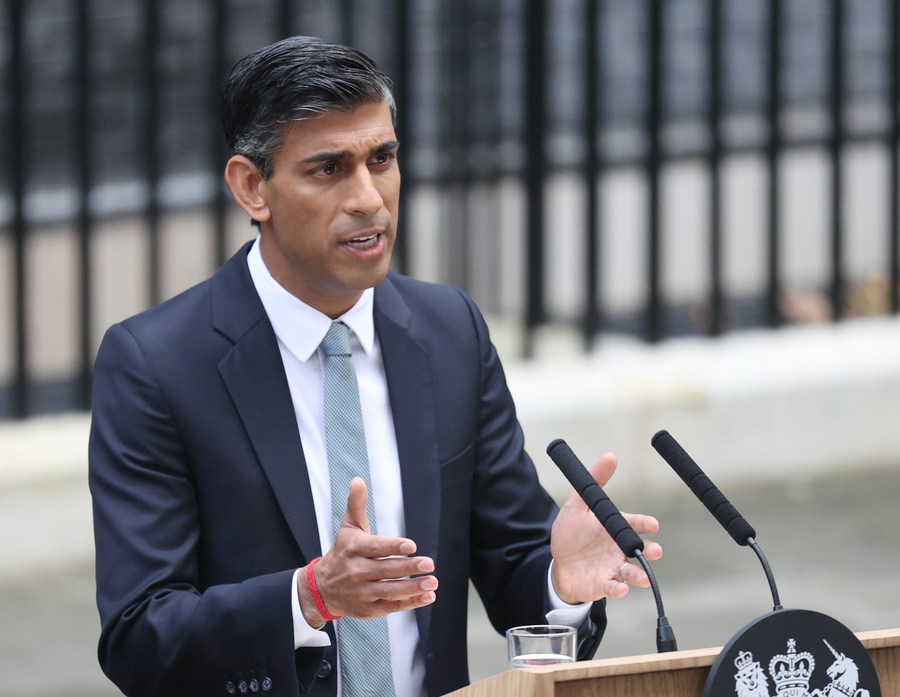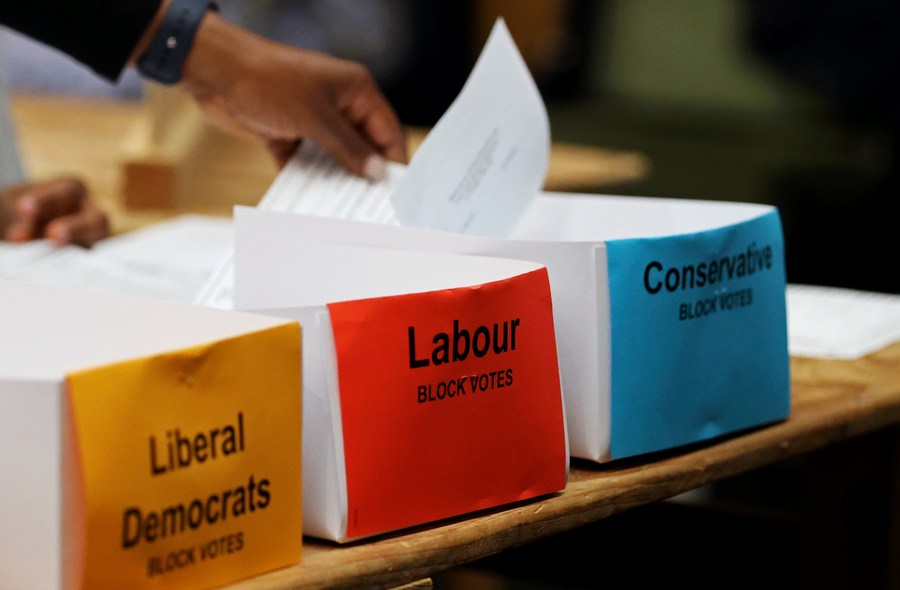Sunak’s Tough Job Ahead

It will be tough now that his party has such a poor economic record.
The U.K.’s new prime minister, Rishi Sunak, attempted to defend his legitimacy in his first question time session in front of Parliament.
“Our mandate is based on a manifesto that we were elected on,” he said under intense questioning from Labour Party leader Keir Starmer. “To remind him, [it was] an election that we won, and they lost.”
That election was in 2019, and Rishi Sunak wasn’t on the ballot.
Since Boris Johnson was forced out of office in the face of scandal, unpopularity, and a criminal sanction for violating his own pandemic laws, the U.K. has had two new prime ministers, Liz Truss and Rishi Sunak, in the span of fewer than two months.
The first, Truss, had to resign after just 45 days after her plan to cut taxes and spending exacerbated the budget deficit and set fire to the British pound. Truss left office less popular than Boris Johnson.
Now Rishi Sunak must try to fix the mess and right his Conservative Party’s drifting ship. He is the first non-white U.K. Prime Minister, the first Hindu PM, and one of the wealthiest PMs in history, having married the daughter of the founder of one of India’s biggest IT companies. He wants to decrease immigration so that the U.K. can “control immigration” and “tighten our statutory definition of who qualifies for asylum in the U.K.”

Sunak begins his term in office with 39% of Brits viewing him favorably. That’s 29 points higher than the amount who approved of Liz Truss. One would hope her replacement would be more popular. But he’s still less popular than the Labour Party’s Starmer. Moreover, 33% of Brits think Starmer would make a better prime minister, while 29% favor Sunak.
British elections, however, are about the party as much as the leader. The prime minister is ultimately elected by the members of the party that win the most seats in the Parliamentary elections.
During Liz Truss’s resignation speech, she said, “I was elected by the Conservative Party with a mandate to change.” A mandate to be a Tory leader, not a national leader. And she misinterpreted it as a mandate to push an undisguised reverse Robin Hood agenda.
George Monbiot said on Democracy Now, “It’s quite an extraordinary thing in this country that we can have a new prime minister without it ever being put to the people. Without any of their policies being approved by the people. The only people who get a vote on this are members of the Conservative Party.”
About 160,000 Tories voted, half of them voted for the new party leader, and then the Tory MPs voted for that person to become prime minister. In essence, Monbiot said, the PM who governs the 67 million people of Great Britain was chosen by a highly unrepresentative sample of 0.1% of the population.
Sunak can point to the 2019 elections the Tories won by a healthy 163-seat margin, but a lot has changed since 2019. There’s been the COVID-19 pandemic. There’s been the implementation of Brexit. There’s been the resignation of two disgraced Tory prime ministers.

The Tory government is pushing things that were not in their 2019 manifesto. Liz Truss’s tax cuts for the rich, while a Thatcher-esque conservative specialty, were not explicitly laid out in their manifesto. It was the kind of thing they tried to hide.
The Tories were more popular than Labour in 2019, when Labour had its own unpopular leader, Jeremy Corbyn, tainting the party’s image. However, now the tides have turned. YouGov’s polling shows 51% of Brits think Labour should be in power to just 23% favoring the Tories.
According to the law, the Tories can try to hold out until January 2025 before they call the next Parliamentary elections. The only other way a new election can be called is if Parliament votes for early elections. The Tories control Parliament, and the Tories are aware of the polls.
Regardless of how long he can hold onto power, Sunak has a tough job ahead of him. He’ll have to turn around the U.K.’s slumping economy.
Not long after he took office, the U.K. entered another recession. British GDP lost value from summer to fall, and the projections say it will worsen. “As we stand at the moment, it looks like we’re going to have quite a long period where the size of the economy is declining,” said Guardian reporter Heather Stewart.
It will be tough now that his party has such a poor economic record.
 Facebook
Facebook
 Twitter
Twitter
 Linkedin
Linkedin
 Google +
Google +










